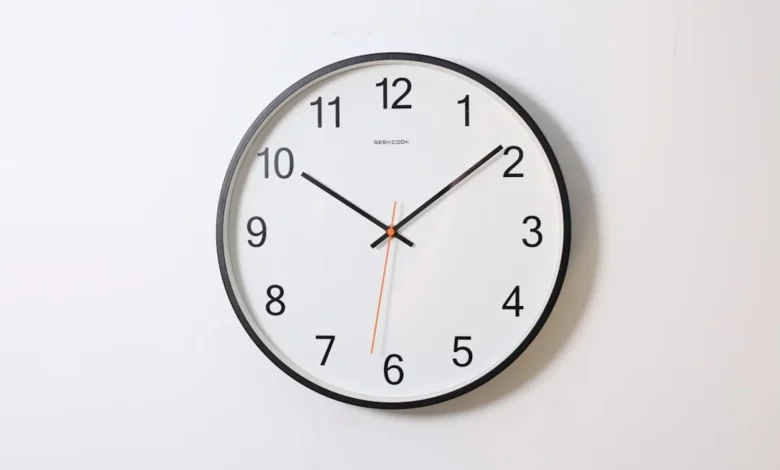Daylight Saving Time: When does the clock fall back today? How to adjust to the change? | Hindustan Times

Most Americans will enjoy an extra hour of sleep this weekend as the nation transitions from daylight saving time to standard time. Shorter days can mean less daylight for outdoor activity, exercise, or time spent outside after work and school – a shift that can affect both mood and sleep.
Daylight Saving Time 2025: The clock falls back today(Unsplash)
The twice-a-year clock adjustment continues to face growing criticism. Health experts and organizations like the American Medical Association and the American Academy of Sleep Medicine have long advocated for permanent standard time, arguing that switching between time systems disrupts the body’s natural rhythm.
A Stanford University study supports that stance, finding that maintaining one consistent time year-round is better for human health, particularly standard time, which aligns more closely with the sun’s natural cycle.
Dr. Jamie Zeitzer, co-director of Stanford’s Center for Sleep and Circadian Sciences, likens the body’s internal clock to an orchestra led by a conductor. “When the clock is regularly disrupted, the instruments fall out of sync,” he explained, noting that the body’s organ systems – from metabolism to the immune system – function less efficiently as a result.
When Does the Clock Go Back Tonight?
The change officially takes place at 2 AM local time on Sunday, marking the end of daylight saving time until March 8, when clocks will once again ‘spring forward’.
How the Time Change Affects Sleep
Even a one-hour adjustment can disturb sleep patterns, especially since work and school schedules remain fixed. The spring shift is typically harder, as darker mornings and brighter evenings make it tougher to fall asleep on time. Research shows a brief increase in car accidents and heart attacks in the days following that transition.
For those already struggling with sleep or seasonal affective disorder (SAD), a form of depression tied to reduced sunlight, the fall change can be especially challenging. Roughly one in three US adults gets fewer than seven hours of sleep per night, and more than half of teenagers fall short of their recommended eight hours.
How to Adjust Smoothly
Experts recommend adjusting bedtime by 15 minutes each night leading up to the time change to minimize disruption. After the switch, getting early-morning sunlight — even by sitting near a bright window, helps reset the body clock more quickly.
Will the US End Time Changes?
The Sunshine Protection Act, which would make daylight saving time permanent, continues to stall in Congress despite broad public support. Until lawmakers take action, Americans can expect to keep adjusting their clocks twice a year.
FAQs: Daylight Saving Time 2025
1. When does daylight saving time end in the US?
Daylight saving time ends at 2 AM local time on Sunday, when most Americans will set their clocks back one hour.
2. Why do we change the clocks twice a year?
The tradition began to make better use of daylight during longer summer days. However, experts now say the switch disrupts sleep and health more than it helps.
3. How can I adjust to the time change more easily?
Try shifting your sleep schedule gradually and get plenty of morning sunlight after the switch. Limiting screen time in the evening also helps regulate melatonin levels.
4. What are the health effects of the time change?
Disruptions to the circadian rhythm can impact sleep, metabolism, mood, and heart health, especially during the spring transition.
5. Will the US ever stop changing the clocks?
The Sunshine Protection Act proposes making daylight saving time permanent, but it remains stalled in Congress. Until passed, the biannual time change will continue.





